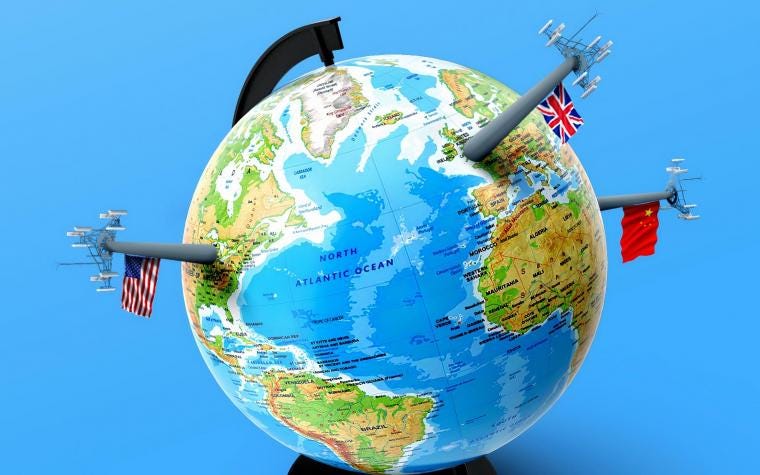
A while back, I found myself in a discussion around abortion rights in Texas. The U.S. Supreme Court had just announced its ban on abortions after six weeks of pregnancy and lobbied citizens to sue those who aid and abet them. The consensus in my discussion was that this was abhorrent and women should have control over their bodies. I had an understanding of the issue from social media.
Regardless of my prior knowledge, I decided to be provocative and asked: “What’s going on in Texas?” Enter the expected condescending gasps and exasperated countenances. Someone responded: “How can you not know what’s happening in Texas? You have to.”
I have since wondered why I supposedly “have to.” Why is it important I know about this state and what is happening there? Why do I have to be so well-versed in American politics when very few exhibit cognizance of my own country, Zimbabwe, or care for African affairs? Am I not just a puppet to some exploitative scheme in doing so? There is no denying that a core tenet of imperialism is forcibly hammering perverted ideologies into anyone and everyone, with disregard for the importance of one’s indigenous and chosen lifestyle. By foregoing my own identity in order to check the boxes of being knowledgeable as per contemporary American standards on this college campus, I play directly into this trap. Many of us do.
Justice — if we are bold enough to believe such a thing exists on this campus — operates in tandem with geopolitics. Nations like the United States stand at the top of this oppressional ladder. I have known this for some time now; I have only recently acquired the language for it, and I continue to do so. At Hamilton, there is little room for the institutionalized subaltern in lectures and event structures. It is clear that most programming is meant to target a specific audience, one rooted in ‘whiteness’ or ‘white ideals’ around capitalist intent and manipulation. Even that which is led by or centered around the marginalized often merely serves to assuage white do-gooder interest.
In theory, many of us know this already. Very few of us are on the receiving brunt of oppression because the majority of us benefit from it. Does thriving in this space mean being knowledgeable about the latest gossip in some village in West Dakota or beef between donkeys and elephants? In doing so, we somehow believe we can fight skewed governmental strata. We feel as if it is wise to go for the head in order to dismantle systems of inequality and injustice, but it is also foolish to negate the power of the body. Perhaps in tackling issues on the ground, we inch closer to toppling oppressive empires as a whole.
As a community, at what level does our caring begin and end? We are yet to truly decide whether we are only compassionate toward the familiar, or if anything else makes us uncomfortable and unwilling. We have no substantive dialectics over whether an atrocity or where it happens is more important to us, for if we are to be honest, there are some things happening in parts of the world that, if they happened here, would elicit outrage. So what is stopping us then from being as infuriated? Perhaps America is so deeply rooted in its freedom gospel that every other country only occupies the margins. Or maybe we simply do not care, and
even that
assumes our caring is needed or necessary.
The reason I ask so many questions is because we find the answers we seek in them, and sometimes, those answers do not come neatly packaged in clear signs or sentences. Sometimes, they are messy, or breed more uncomfortable questions, yet they always require a contemplation that challenges our perverted views around what is normative and non-native.
I find myself in a unique position because I happen to be physically present in this place and I cannot ignore its ignorance.
Some have said I am lucky to be here and I should be grateful or that I need to adapt, but in being another statistic that only fulfills some set diversity quota, there is little space to exercise gratitude in a place so negligent of my plight and those in similar positions. It is fatiguing to give credence to an environment that will not reciprocate. One of my high school teachers had this Arundhati Roy quote etched in her heart: “There’s really no such thing as the ‘voiceless’. There are only the deliberately silenced, or the preferably unheard.” I refuse to give voice to that which will not even recognize my own.
It is vital that we have discourse around rights violations and what needs to be done. That becomes the stepping stone for the change toward which we hunger. If there is anything happening in Texas or any other place and I have the capacity to help, I would be delighted to; let us not, however, allow our personal biases to drive our desire for positive societal impact. Rather, as we converse, let us pay attention to who and what is driving our thoughts, speech and actions.
















